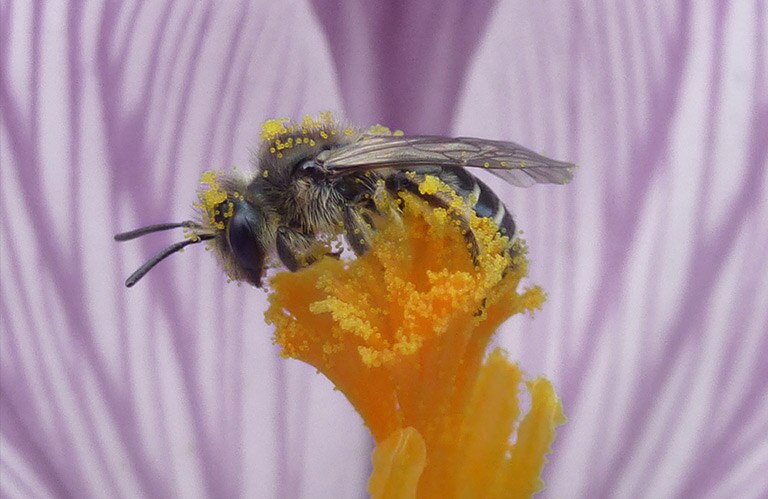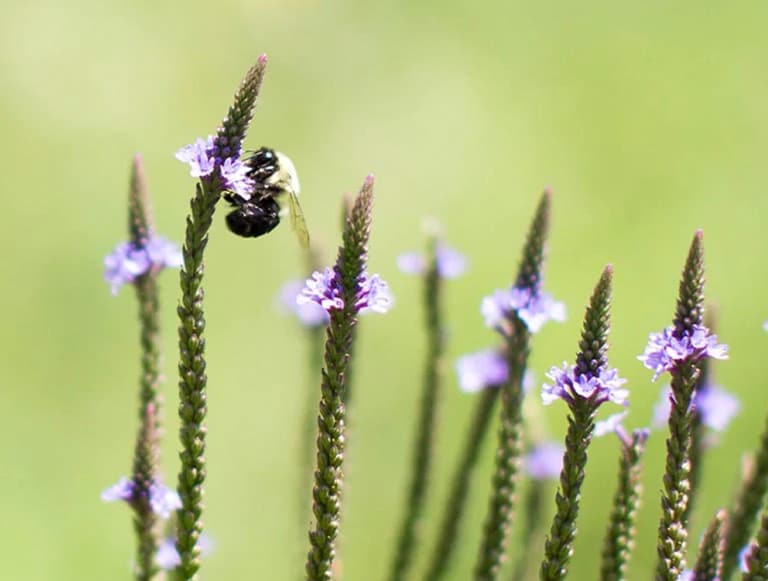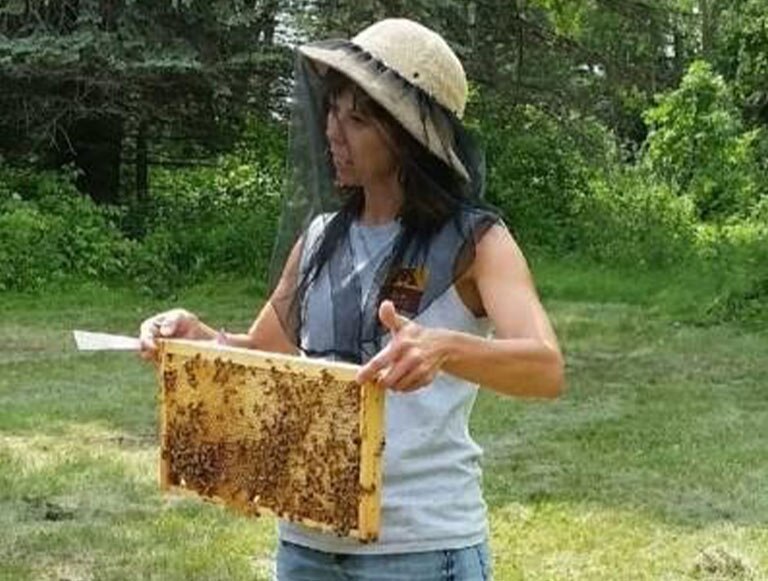Did you know that many of the fruits and vegetables we love depend on these tiny pollinators? August 15th is National Honey Bee Day, and since it’s our mission to care for the Earth, we strive to help protect those on it, including the smallest of creatures.
Honey bees are a crucial part of the environment, yet they’re facing significant health challenges. To learn why, we turned to bee-expert Becky Masterman, Ph.D. in Entomology, and Aveda’s University of Minnesota (UMN) Bee Squad Program Adviser. Becky shares how Aveda helps protect the bees through this program, and how you can help, too.
Small yet mighty
Honey bees shoulder enormous responsibility on their tiny wings: one out of every three bites of food on our tables depends on these kinds of pollinators.* In other words, honey bees are integral to our food system.
Becky tells us honey bees are one of the over 4,000 species of bees that live in North America, and their pollination provides our country with a range of foods from almonds and apples to carrots, watermelon and more. All flowers depend on pollination by honey bees in order to survive.
Unfortunately, the population of our pollinator heroes has been sharply declining over the past several years. Fewer bees in our ecosystem may result in higher prices of the foods we love and a shortage of nutritious fruits, vegetables and nuts. The beauty of our landscapes may also decline with fewer flowers to enjoy.
What’s causing their health crisis?
For more than a decade, honey bees have been experiencing a health crisis due to factors such as parasites, pathogens, pesticides, diminishing habitat and poor nutrition.







